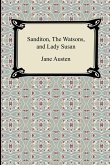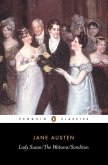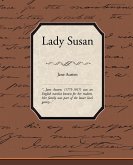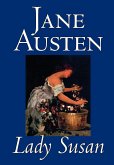Collected together here are three of Jane Austen's posthumously published works; "Sanditon", "The Watsons", and "Lady Susan". These fragmentary tales show Austen experimenting with different literary styles and parodying the popular novels of her day. In "Sanditon," Austen uses the premise of an idyllic and modern seaside town to examine its inhabitants and their various social circles with her trademark sharp social observations and wit. "The Watsons" is the story of Mr. Watson, a widowed clergyman, and his two sons and four daughters. The heroine of the tale is the spirited daughter Emma, who finds her marriage prospects lessened by both her poverty and, ironically, her sense of refinement. "Lady Susan", the most complete of the three, is an epistolary novel which focuses on the story of its title character, a beautiful, but petty and unscrupulous woman. Lady Susan engages in constant flirtations and manipulations while she searches for rich husbands for herself and her young daughter. Also included here is a cancelled chapter of "Persuasion" and the short essay "Plan of a Novel" in which Austen sets out her capacity as a novelist and what makes up the ideal novel. This edition is printed on premium acid-free paper.

„Lady Susan“
von Jane Austen
Wer ist nun eigentlich schuld, wenn eine Intrige erfolgreich ist, die Intrigantin oder das Opfer? Dieser kleine „Roman in Briefen“, den Jane Austen mit zwanzig schrieb und nie zur Veröffentlichung bestimmte, macht vom ersten Satz an deutlich, dass die eigentliche Frage ist, wer das gesellschaftliche Doppelspiel am besten beherrscht und wie lustvoll er das tut: „Mein lieber Bruder“, schreibt Lady Susan an Mr. Vernon, „länger kann ich mir nicht das Vergnügen versagen, Deiner bei unserem letzten Abschied ausgesprochenen Einladung Folge zu leisten und einige Wochen bei Euch in Churchill zu verbringen.“ Ja, Lady Susan sucht ein Unterkommen, einen neuen Mann, einen für ihre Tochter, sie reißt dafür Ehen auseinander und treibt junge Männer zur Verzweiflung. Der Film, den der Amerikaner Whit Stillman nach dem Roman drehte, ist großartig, aber den Windungen von Austens eleganter Ironie im Buch sollte man sich nicht versagen. Einen Verlierer gibt es am Ende: „Zum großen Leidwesen der Postfinanzverwaltung konnte dieser Briefwechsel nicht weiter fortgesetzt werden, da einige der Beteiligten sich persönlich trafen und die Wege der anderen sich trennten.“ FRITZ GÖTTLER
Jane Austen: Lady
Susan. Ein Roman in Briefen. Aus dem Englischen von Angelika Beck. Insel Verlag,
Frankfurt/Main 2016.
95 Seiten, 8 Euro.
DIZdigital: Alle Rechte vorbehalten – Süddeutsche Zeitung GmbH, München
Jegliche Veröffentlichung und nicht-private Nutzung exklusiv über www.sz-content.de









